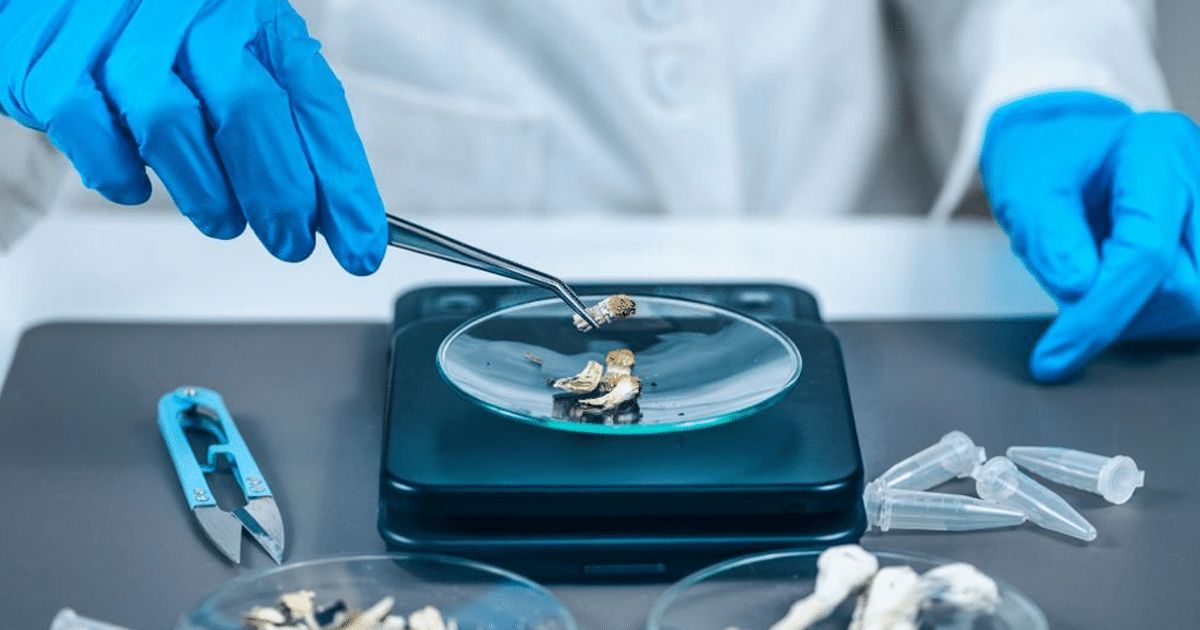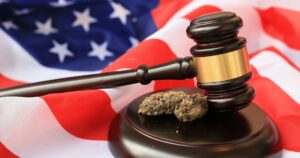As interest in psychedelic therapy for mental health issues continues to grow across the United States, some states find themselves further along in the path to therapeutic psychedelics than others.
One such state is Maryland. As we’ve previously mentioned in other articles, Maryland lawmakers are pushing a bill that would fund cost-free psychedelic therapy for veterans suffering from PTSD and traumatic brain injuries. The bill, which was passed unanimously in both the Senate and the House of Delegates (46-0 and 135-0, respectively), would create what they’re calling the Post Traumatic Stress Disorder and Traumatic Brain Injury Alternative Therapies Fund. This fund would not only allow for free access to therapeutic psychedelics– such as psilocybin, ketamine, and MDMA–for veterans but would also force further research into “the use of alternative therapies for veterans with PTSD and traumatic brain injuries.”
Now that both the Senate and the House of Delegates have unanimously passed the bill, it’s landed in Maryland Governor Larry Hogan’s hands.
What This Could Mean For Maryland Vets
With the legislation in his hands, Governor Hogan holds the key to opening the door to a whole new world of mental health treatments for the state’s veterans.
Currently, there are only two ways that doctors and therapists use to treat PTSD, and both of them have the habit of falling short.
The first way in which doctors attempt to treat vets suffering from PTSD is with psychotherapy. Therapists often use cognitive processing therapy as a way of training PTSD sufferers to evaluate and eventually change the way they process the upsetting and intrusive thoughts that trigger their trauma responses.
The second form of PTSD treatment is the use of antidepressants or antipsychotics. Antidepressants work by affecting the hippocampus, which is an area of the brain that is involved in memory formation.
Antidepressants are divided into two categories: selective serotonin reuptake inhibitors (SSRIs) and selective serotonin-norepinephrine reuptake inhibitors (SNRIs) (SNRIs).
SSRIs work by inhibiting the body’s reabsorption of serotonin, which, in turn, increases the amount of serotonin in the brain. Serotonin helps to regulate our emotions and moods.
SNRIs, on the other hand, block the reabsorption of both serotonin and norepinephrine. Norepinephrine is the neurotransmitter in our brain that promotes vigilance and alertness, focuses our attention, and increases our ability to form and retrieve memories.
While therapy, antipsychotics, and antidepressants do work for some PTSD sufferers, the problem is that they’re not a one-size-fits-all solution. In fact, studies have shown that for long-term sufferers, those who have faced multiple traumatic events, or those suffering from chronic PTSD, they simply don’t work.
As for antipsychotics, according to NYU Langone Health, “A new study found that the antipsychotic risperidone worked no better than a placebo in alleviating typical PTSD symptoms in patients who had the disorder long-term or who continued to experience symptoms after being treated with antidepressants.”
However, with Governor Hogan holding the ability to open up new avenues of treatment in the palm of his hand, this could soon mean that Maryland vets will have more options on the table than just medication that doesn’t always work, or psychotherapy that many simply aren’t comfortable with.
[Related Reading: Psychedelic Updates From Around the Country]
Psychedelics And Conditioned Fear Responses
A 2013 study conducted by the University of South Florida found that low doses of psilocybin given to mice who had been conditioned to fear a specific tone when played actually lost their conditioned fear response to the tone at an exceptionally quicker pace than mice who did not receive psilocybin.
Researchers would play the tone, and then, after a pause, would give the mice a quick shock akin to static electricity. Eventually, the mice would come to fear the tone, and would freeze in place, anticipating the shock that would inevitably come after the pause. Eventually, they stopped shocking the mice in an effort to see how long it would take them to stop freezing and lose the conditioned fear response.
Of the results, Dr. Juan Sanchez-Ramos said, “Psilocybin enhanced forgetting of the unpleasant memory associated with the tone. The mice more quickly dissociated the shock from the stimulus that triggered the fear response and resumed their normal behavior. The result suggests that psilocybin or similar compounds may be useful in treating post-traumatic stress disorder or related conditions in which environmental cues trigger debilitating behavior like anxiety or addiction.”
Due to the fact that psilocybin stimulates serotonin receptors in the brain and stimulates the repairing and growth of brain cells in the hippocampus, it is an avenue of treatment for PTSD and Traumatic Brain Injuries that needs to be further researched for our vets, who deserve the best treatment possible.
Governor Hogan has that ability laying on his desk right now. We urge him to pass the bill so that Maryland’s vets can get the treatment they need and deserve.
Enjoyed that first hit? Come chill with us every week at the Friday Sesh for a freshly packed bowl of the week’s best cannabis news!
- Delaware’s Recreational Cannabis Market Finally Set to Launch After Years of Challenges
- Excise Tax Increase to 19% and Its Impact on California Retailers
- Nebraska’s Governor Approves Emergency Medical Cannabis Regulations
- We Must Advocate for Fair and Accurate Marijuana Impairment Testing Policies
- The Global Roots of Plant Medicine: Why Cannabis Has Always Been Part of the Plan
- Military Construction and Veterans Affairs Bill Amendments Could Change Medical Marijuana and MDMA-Assisted Therapy Options for Veterans














